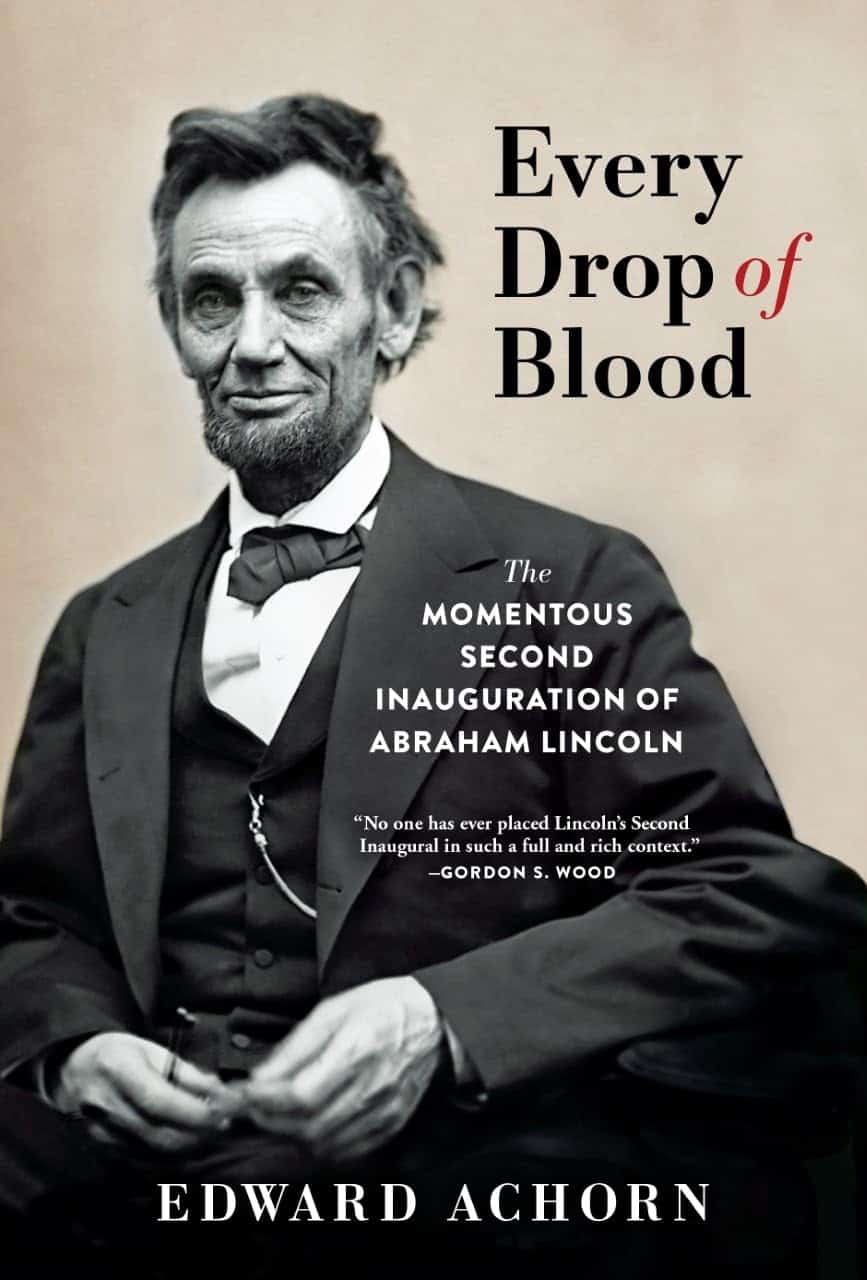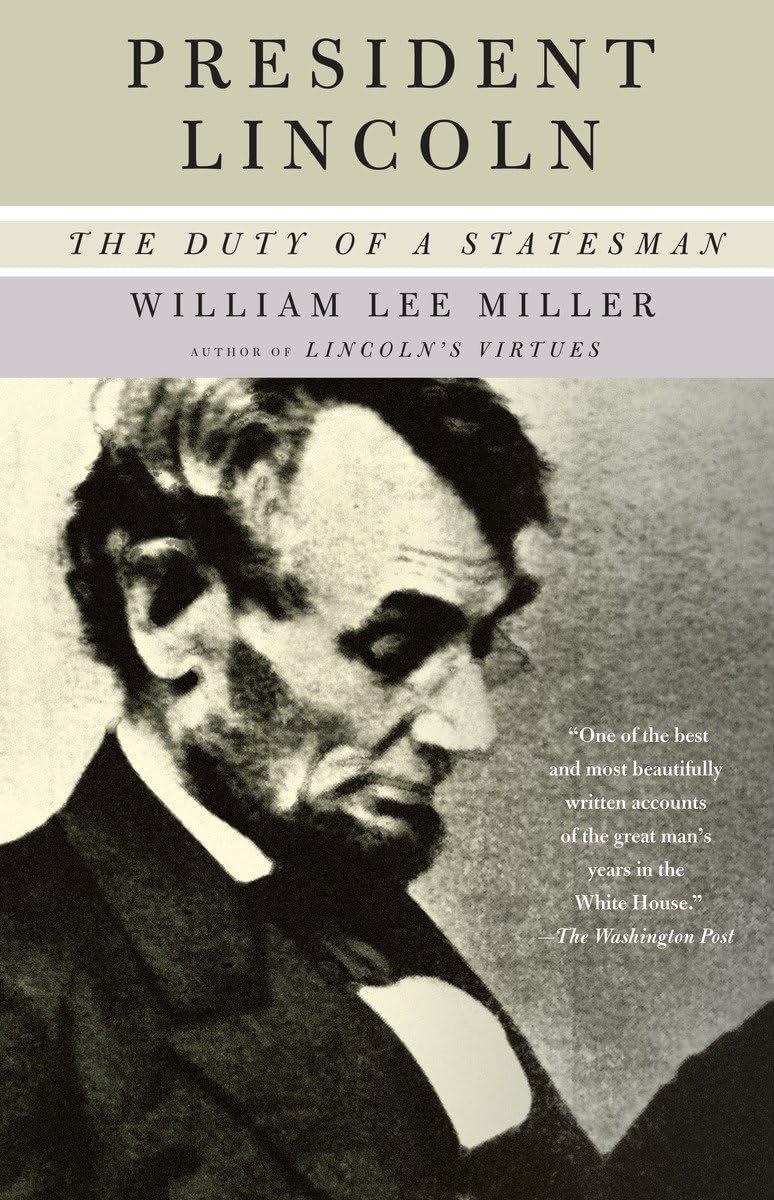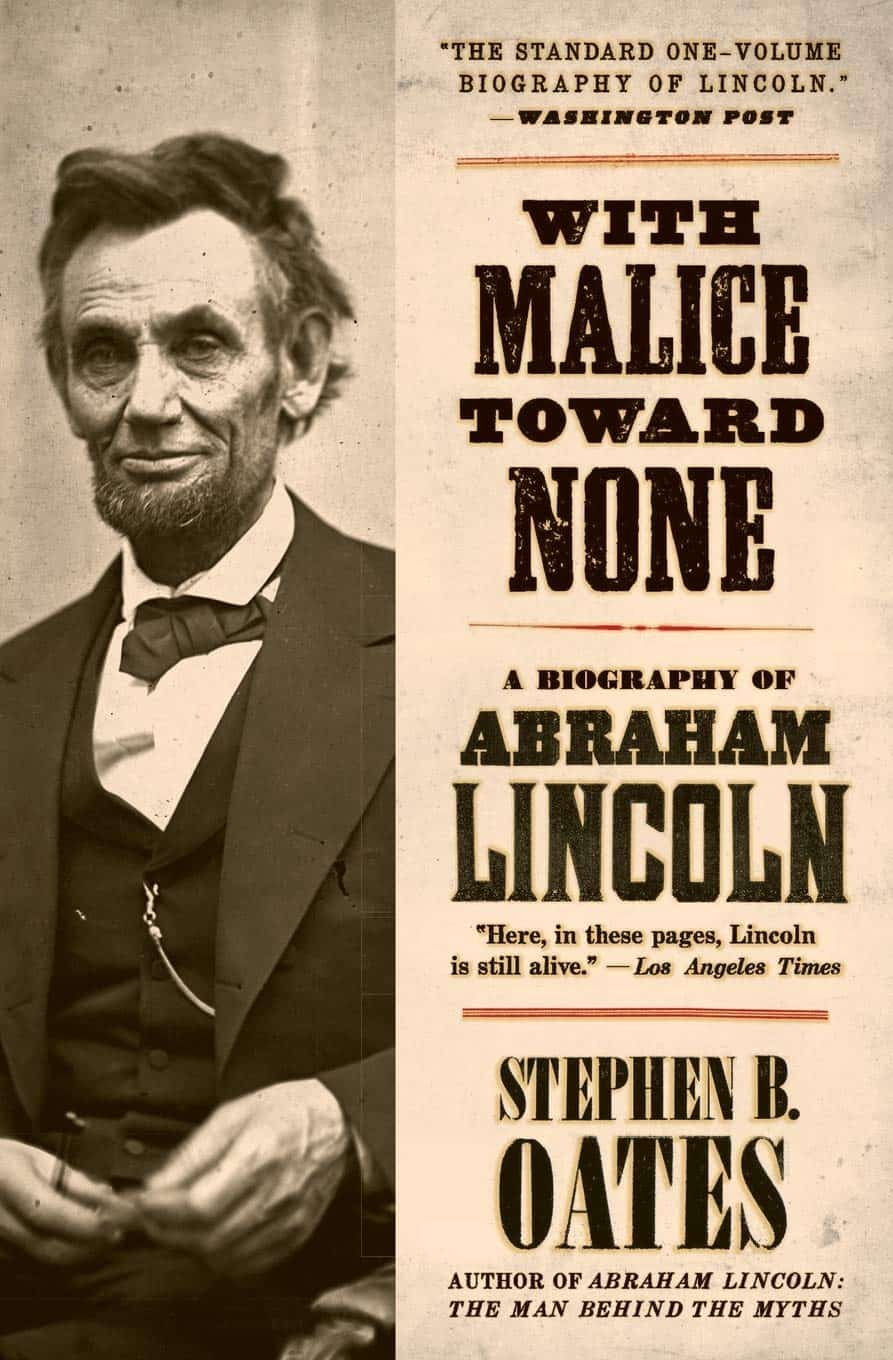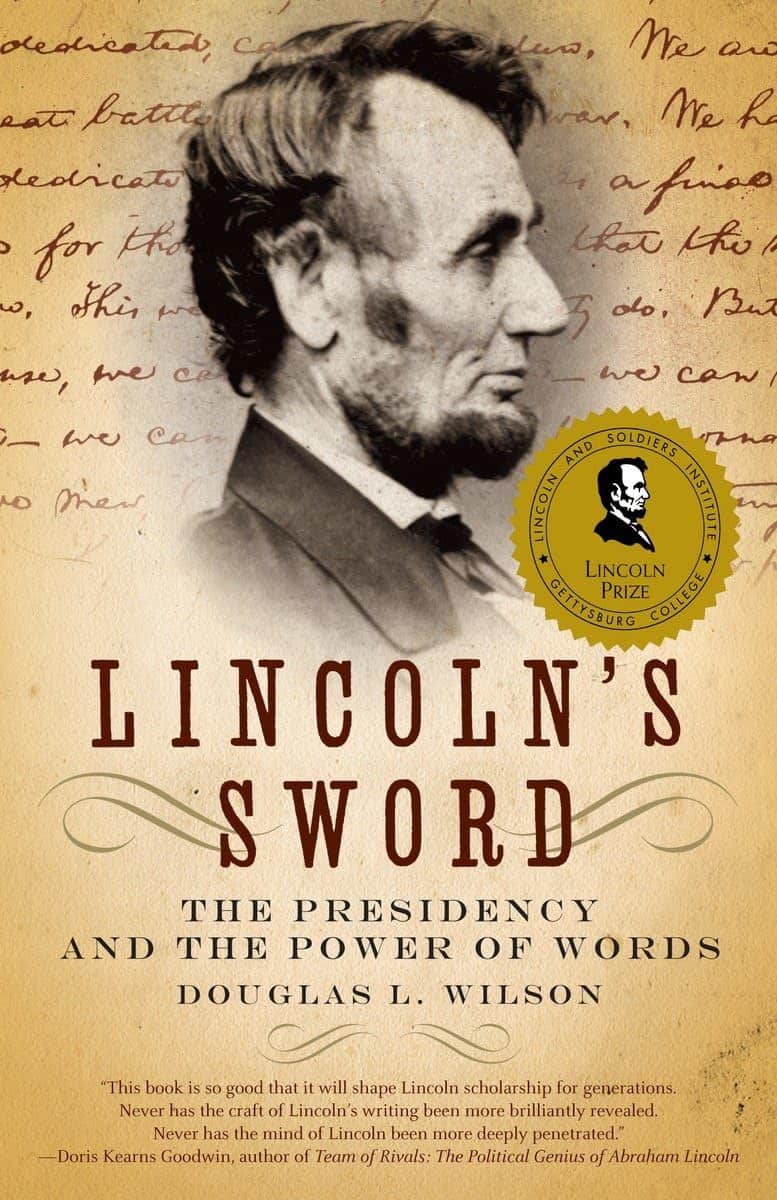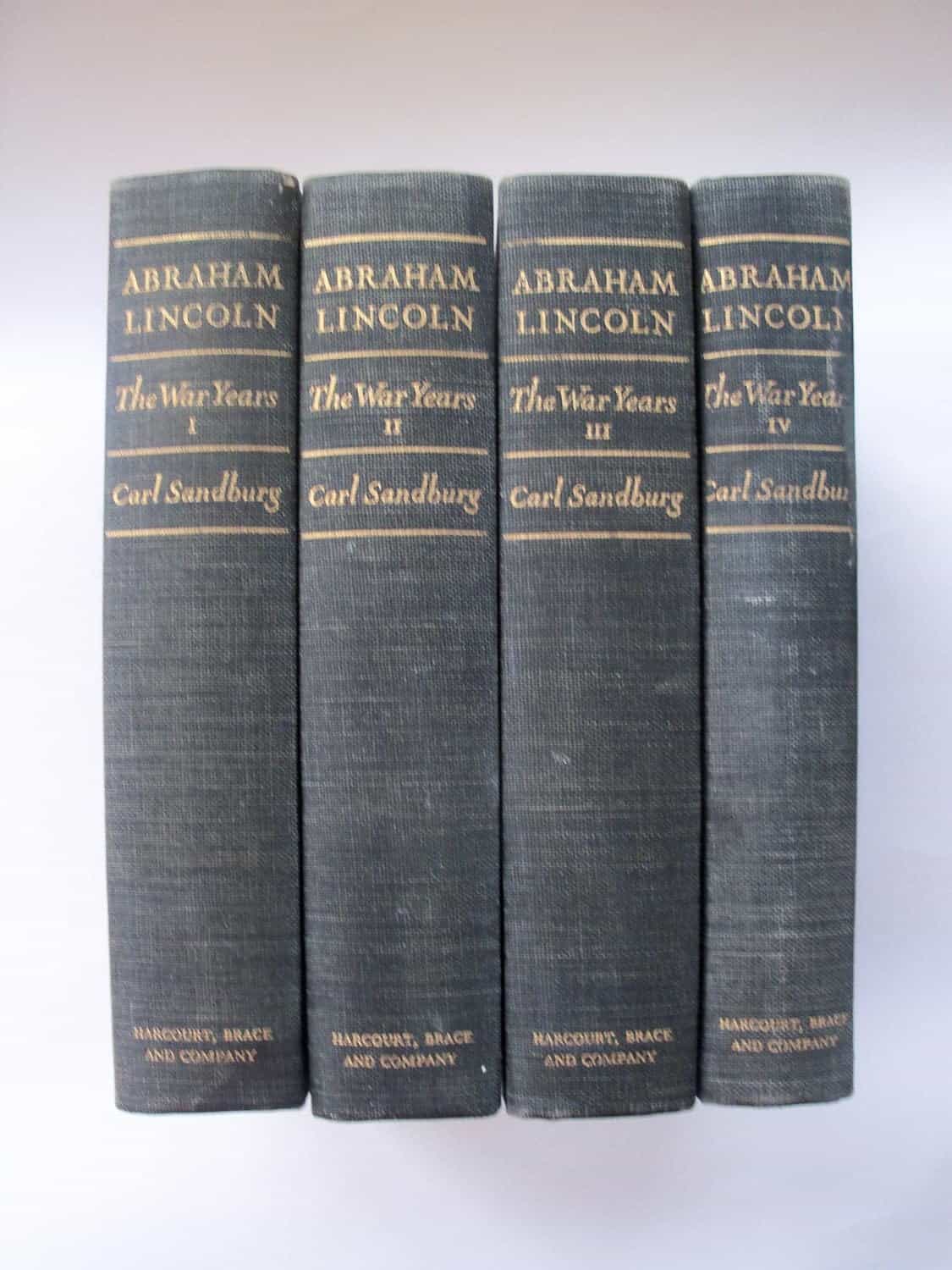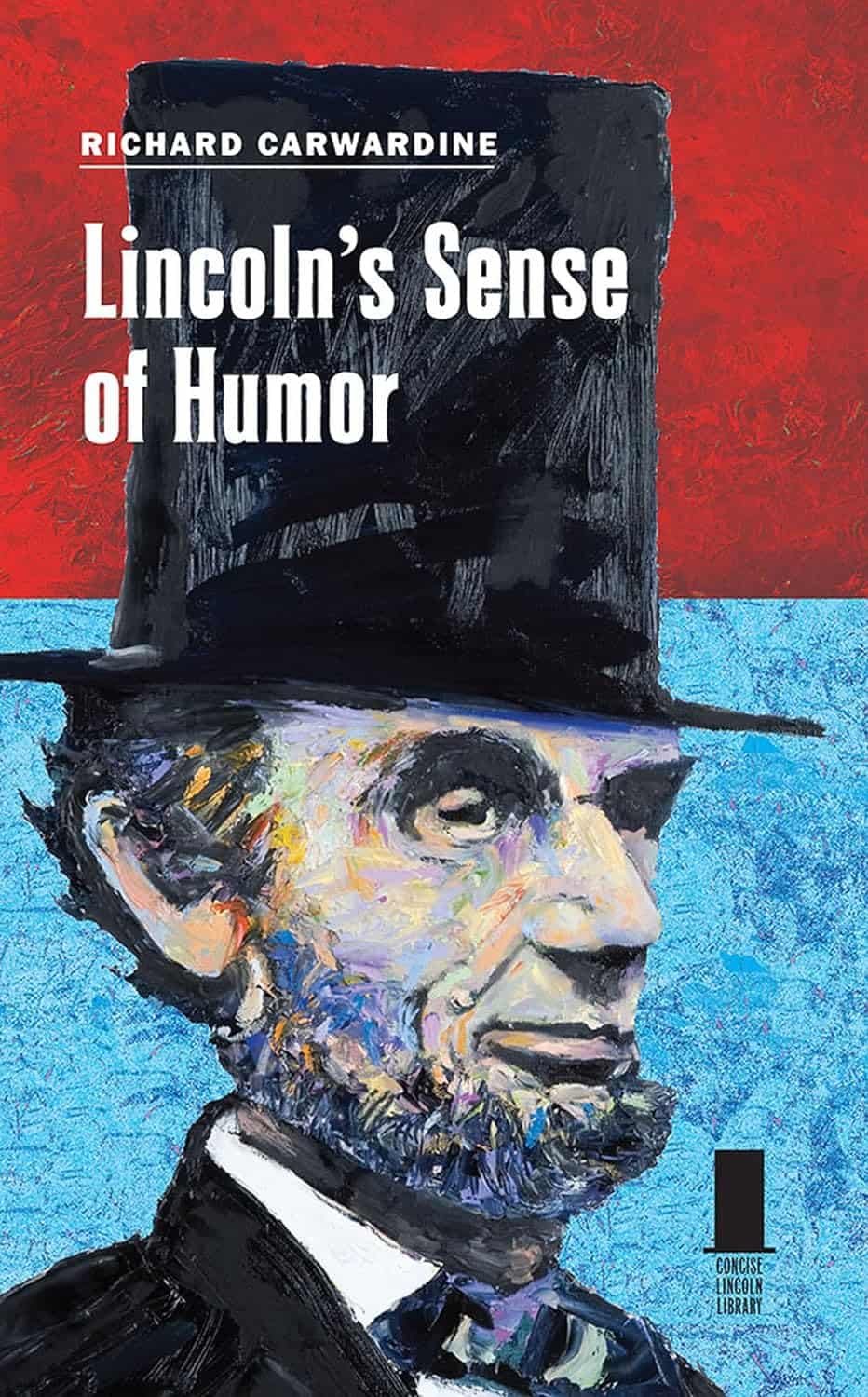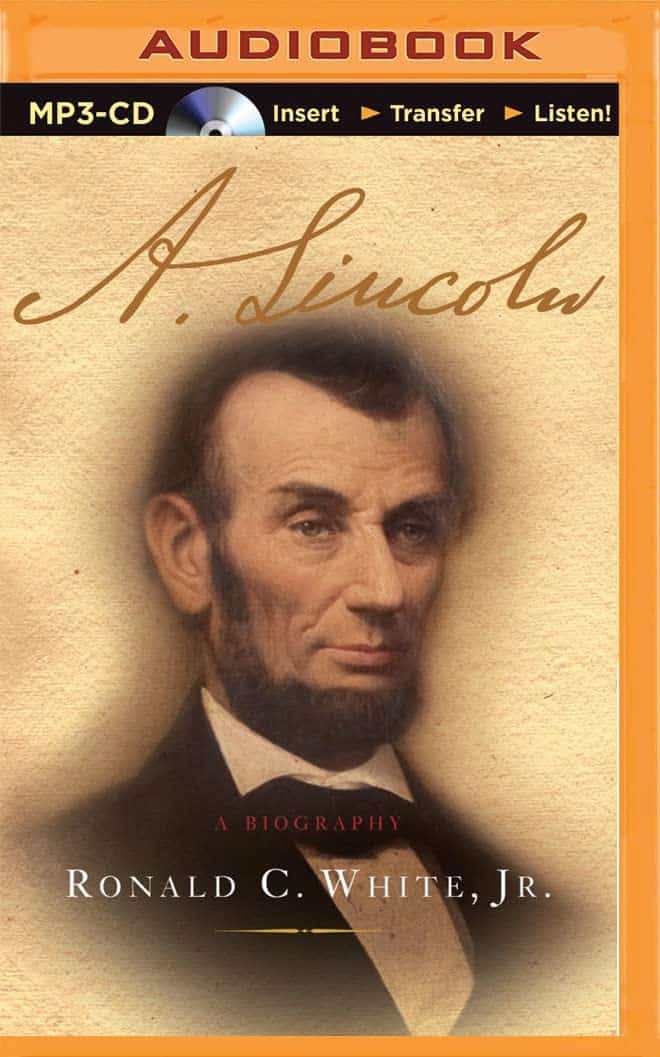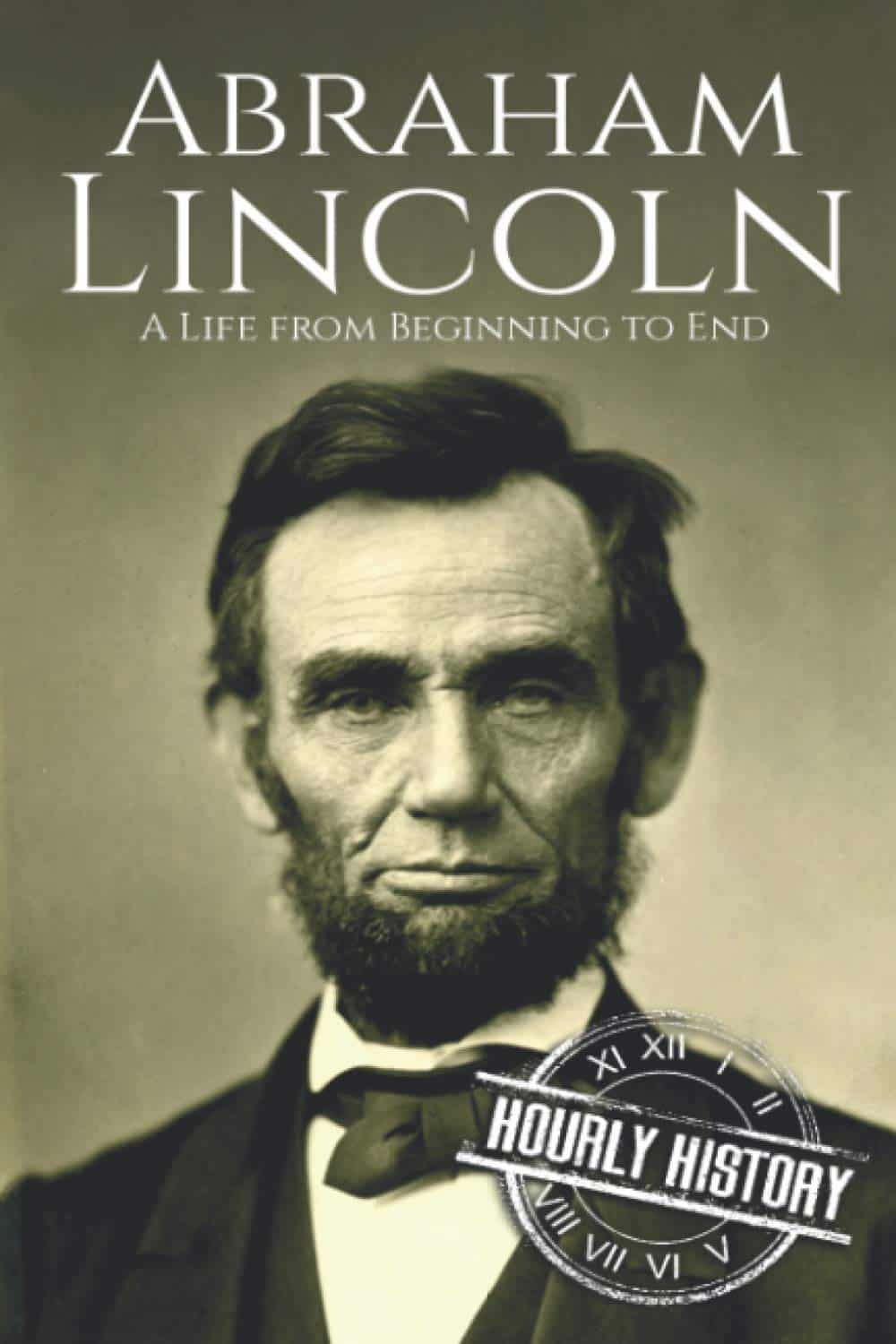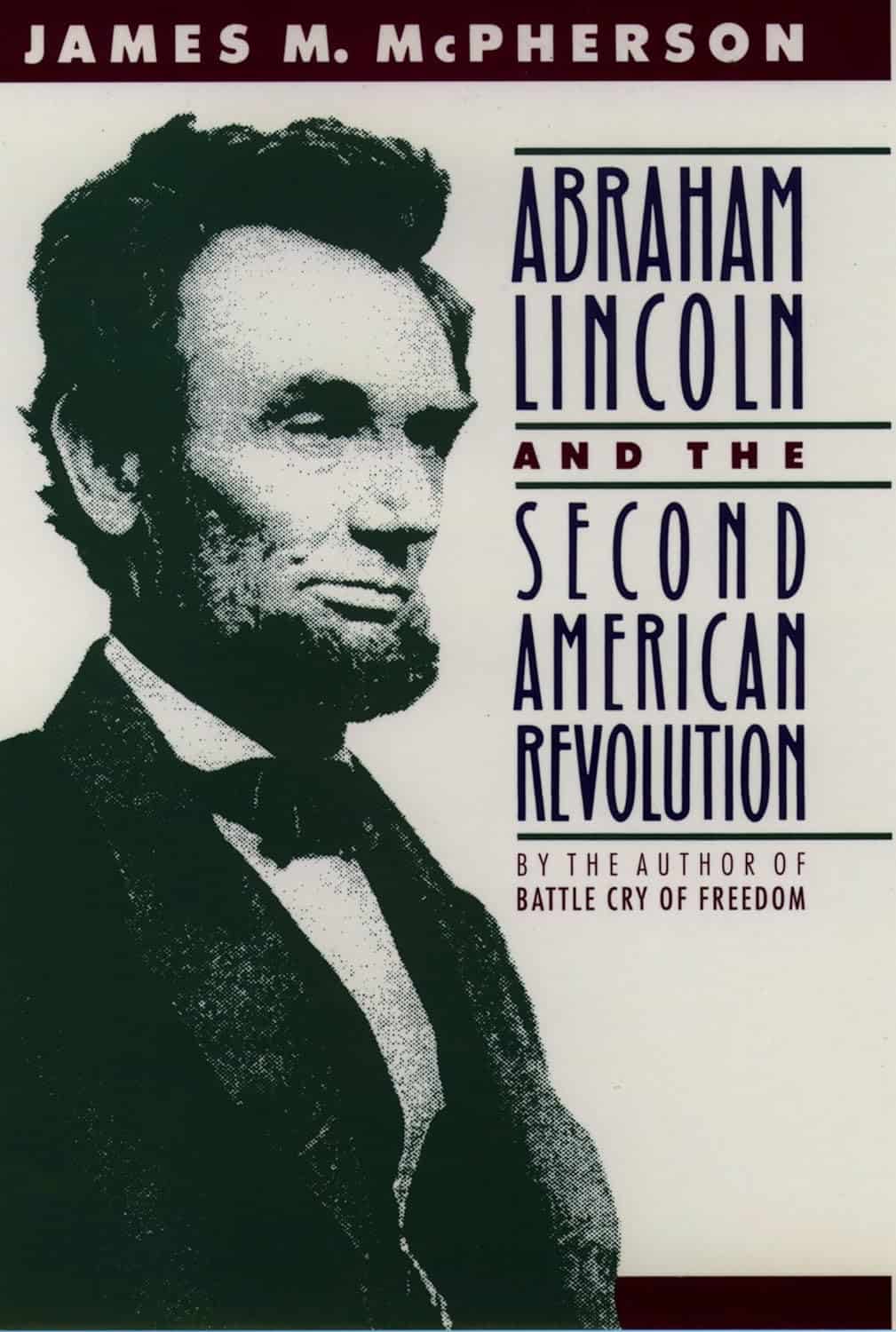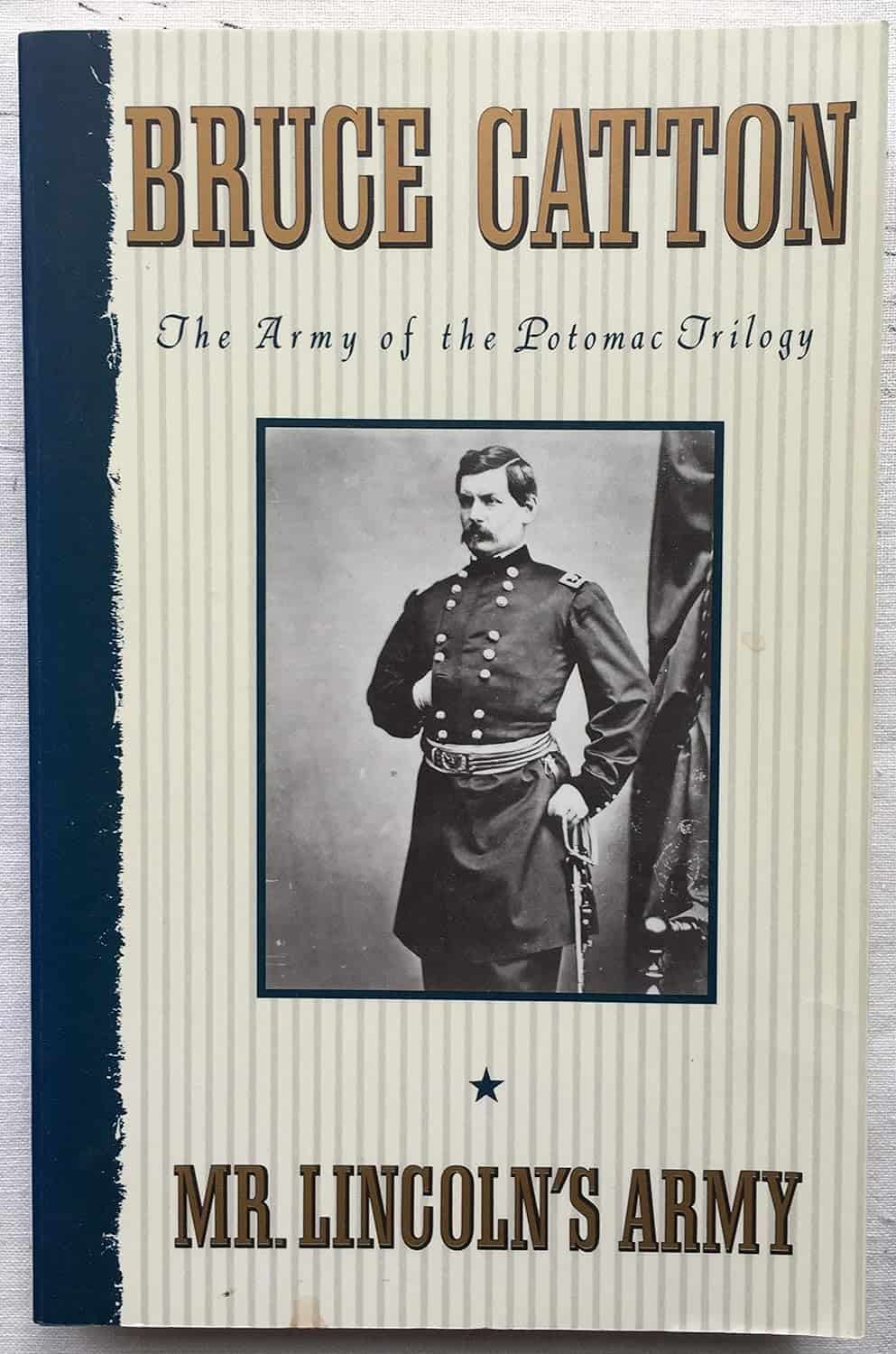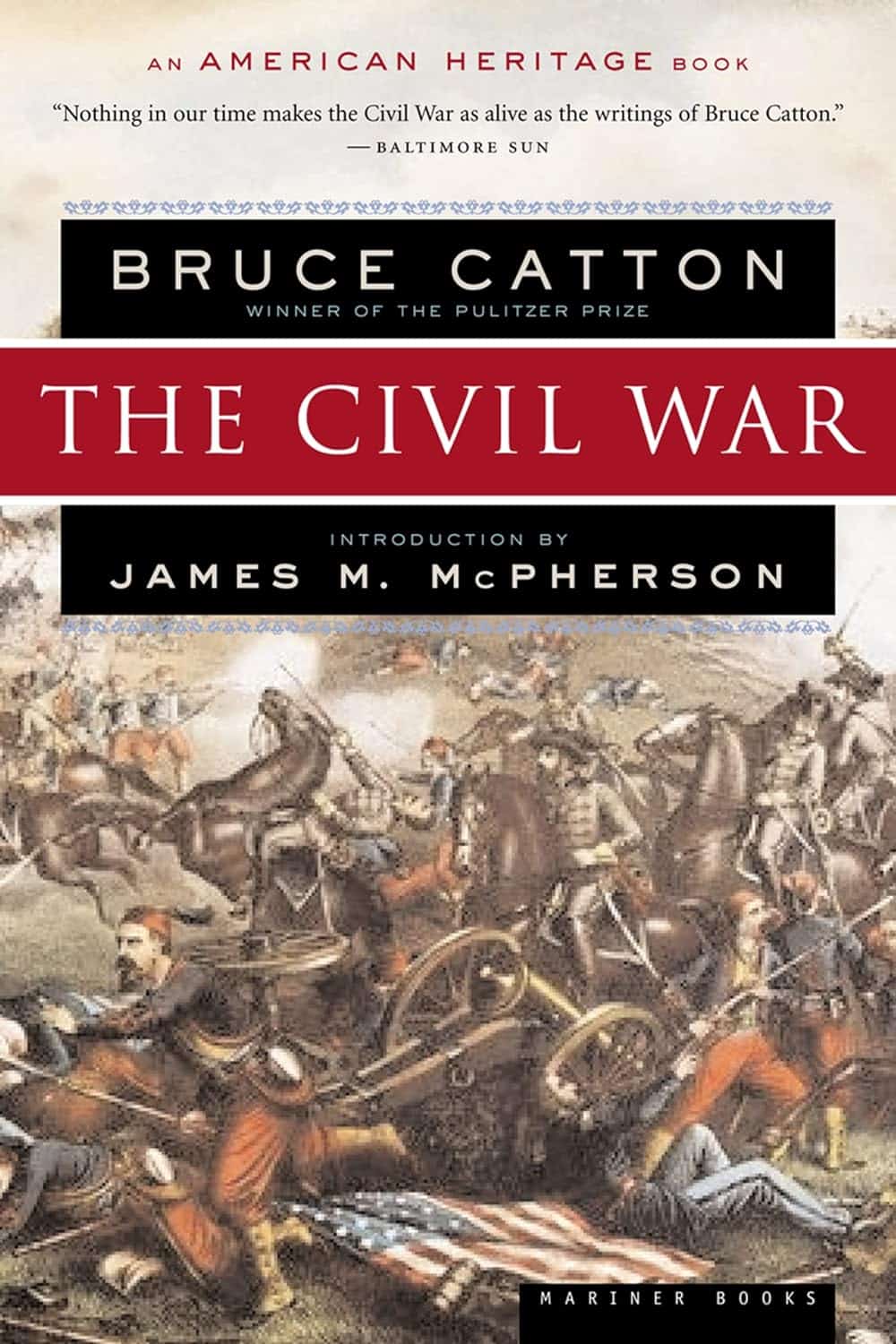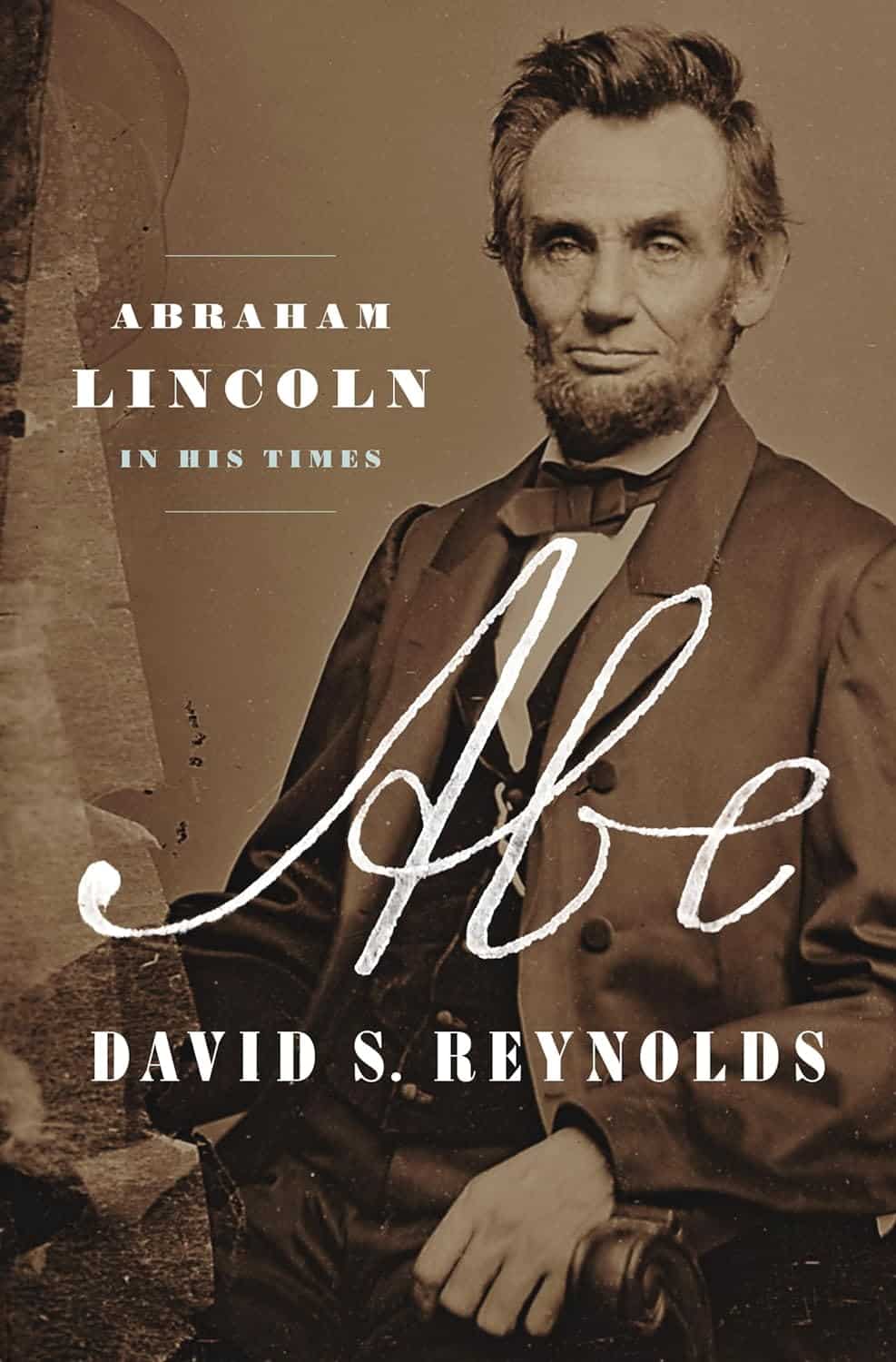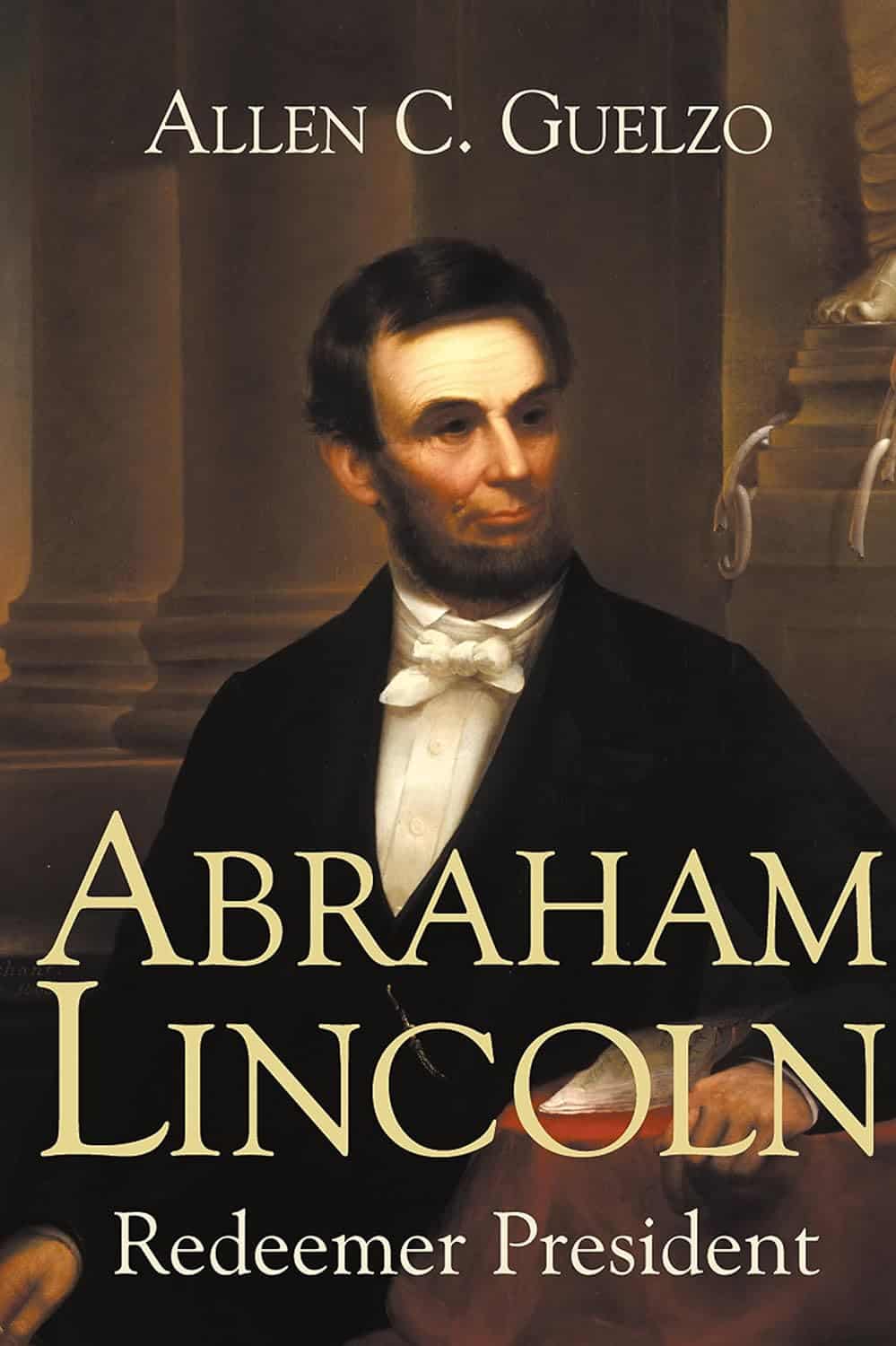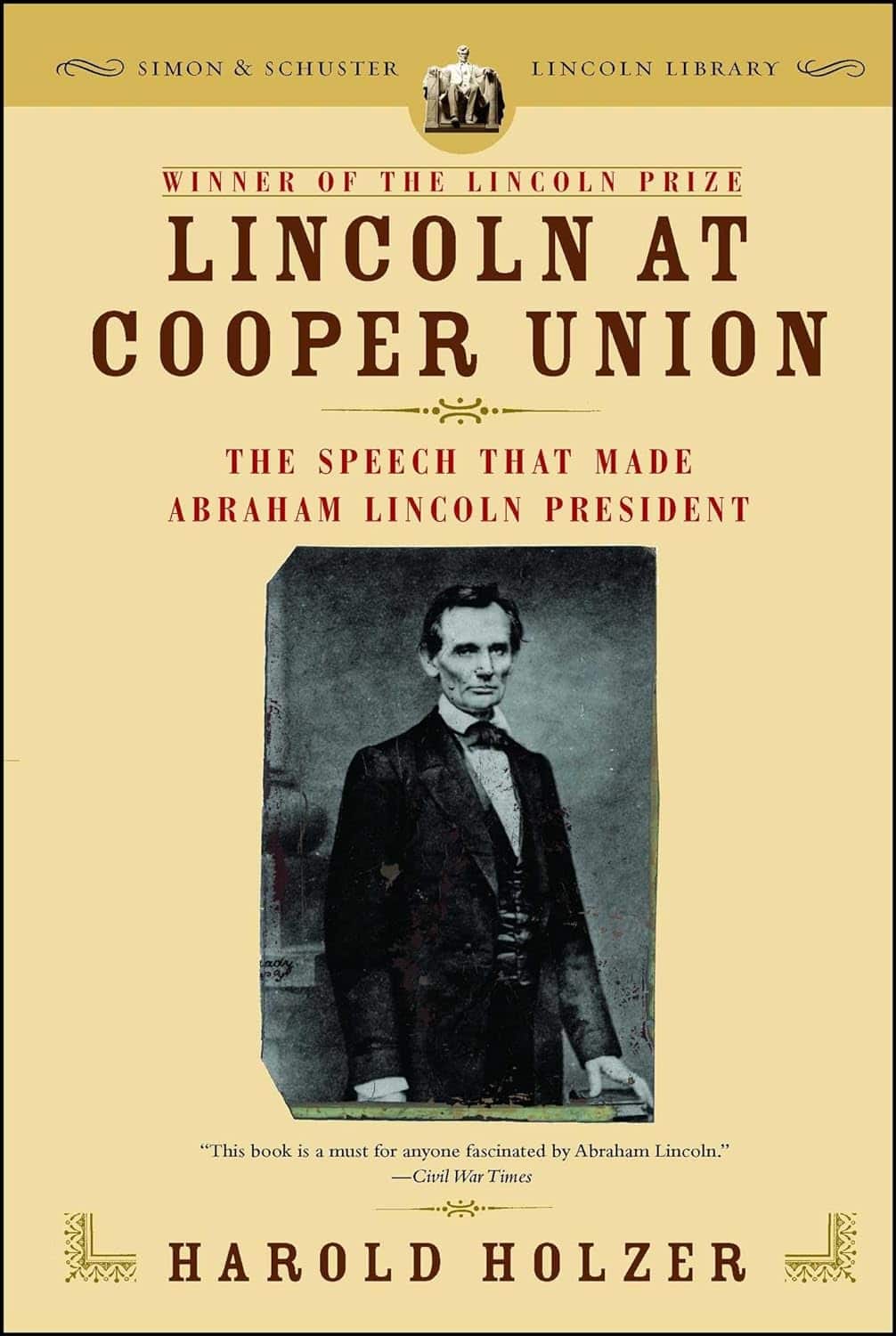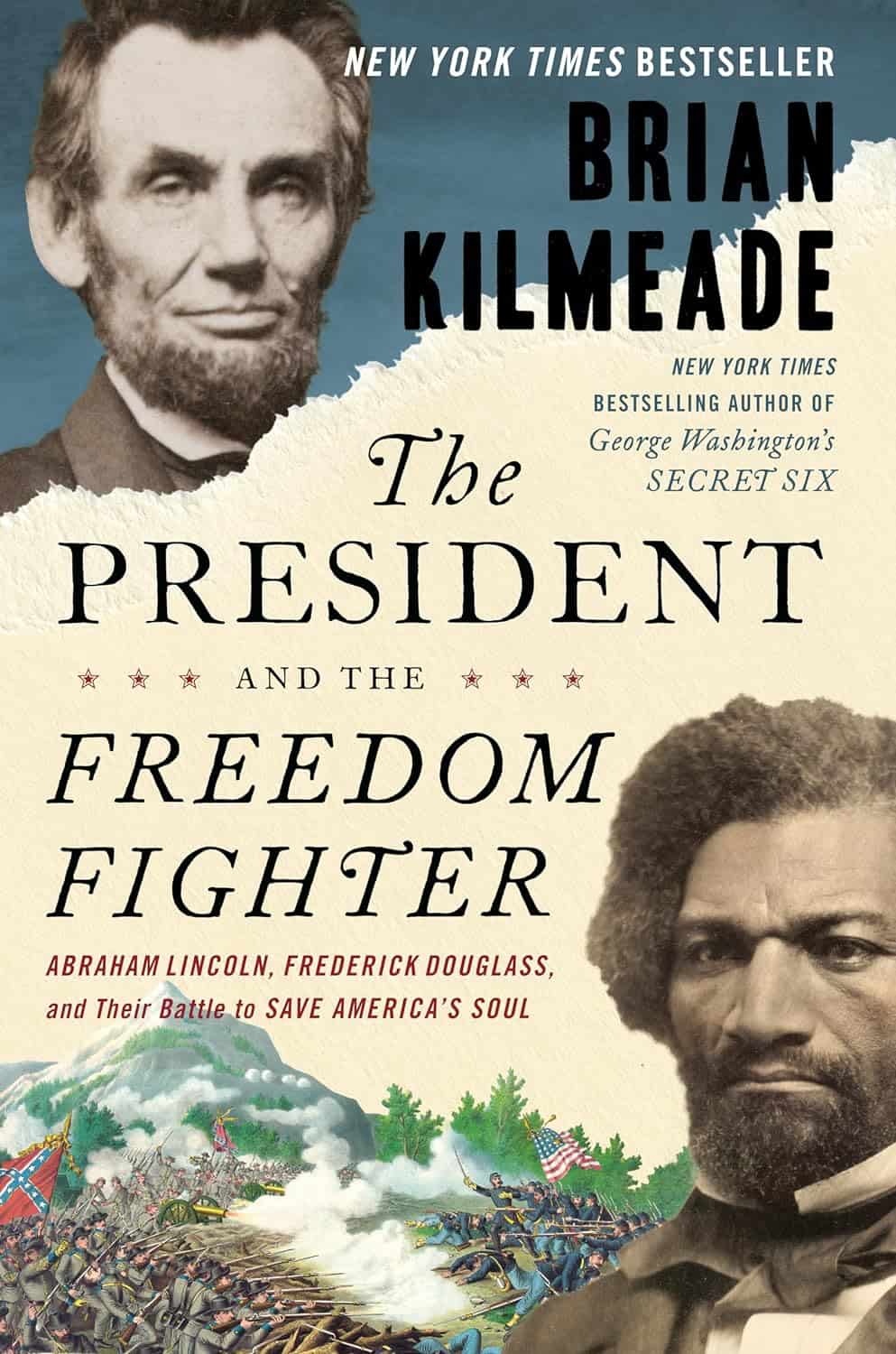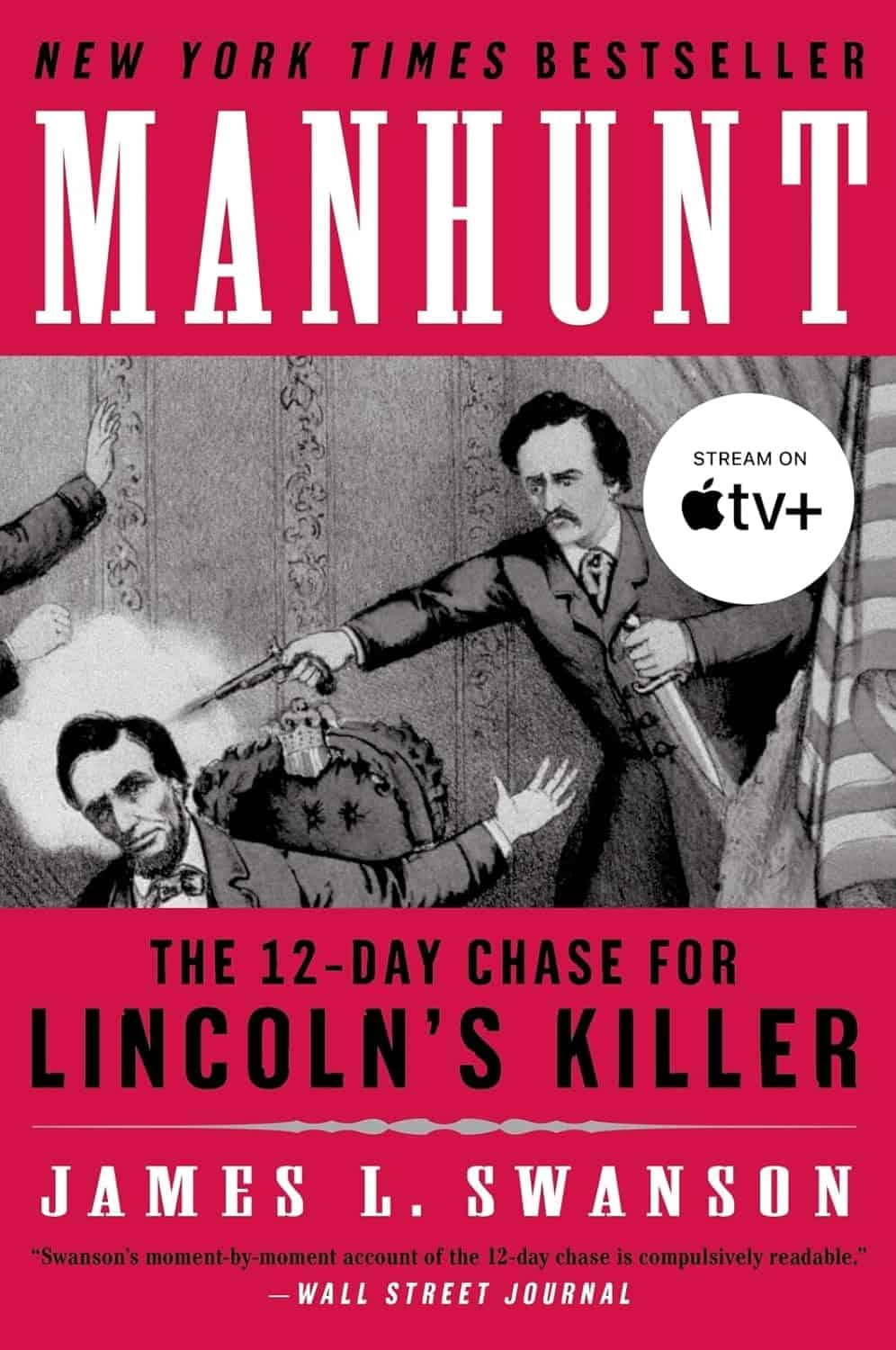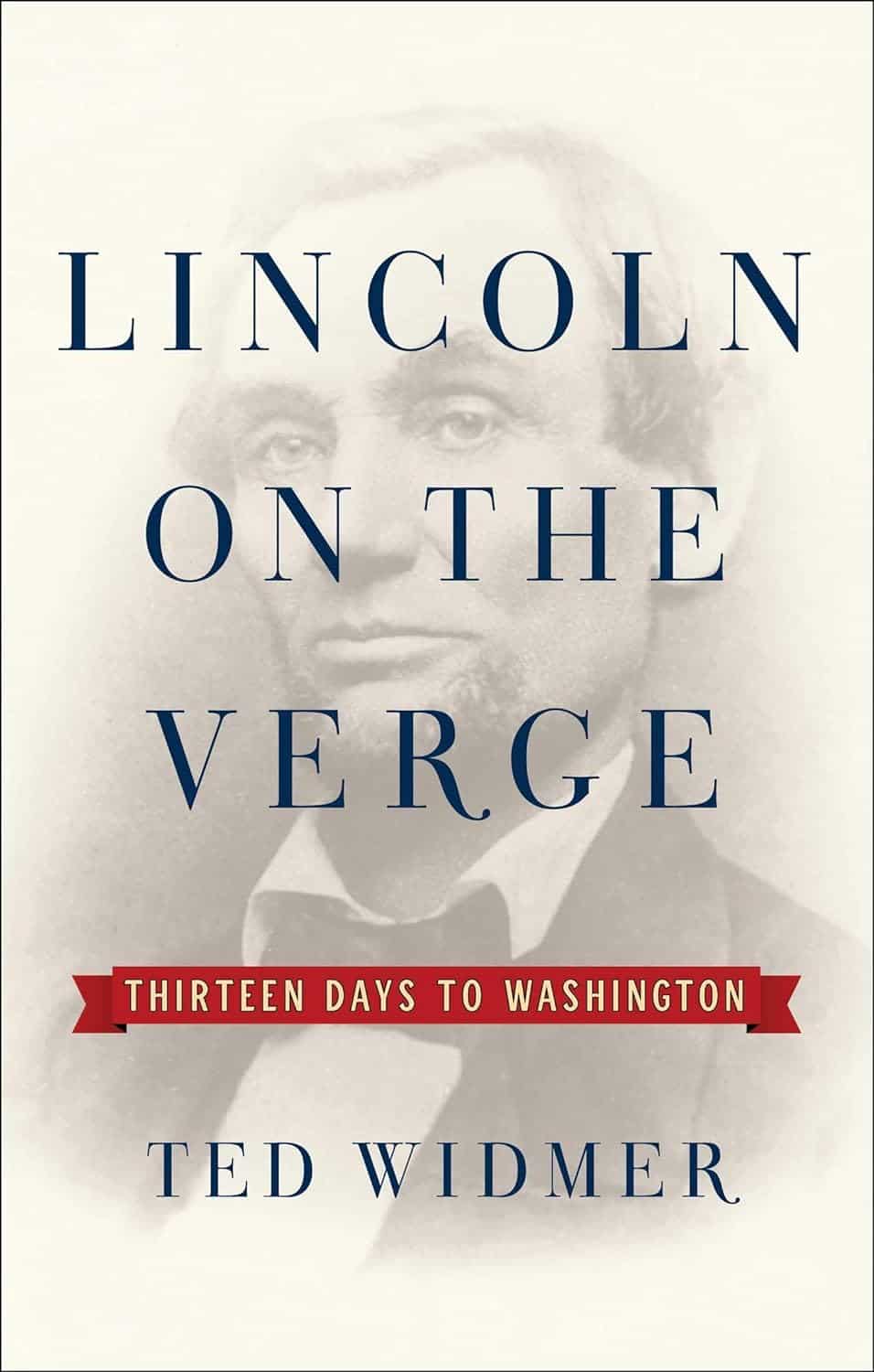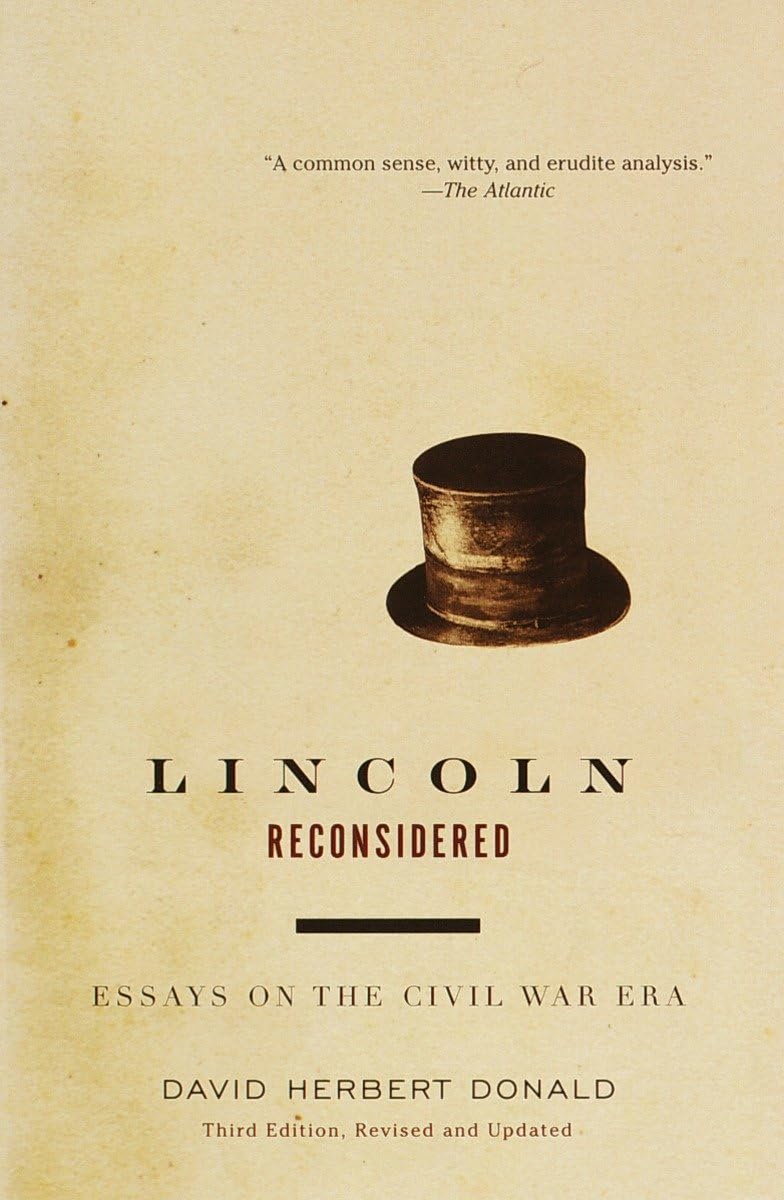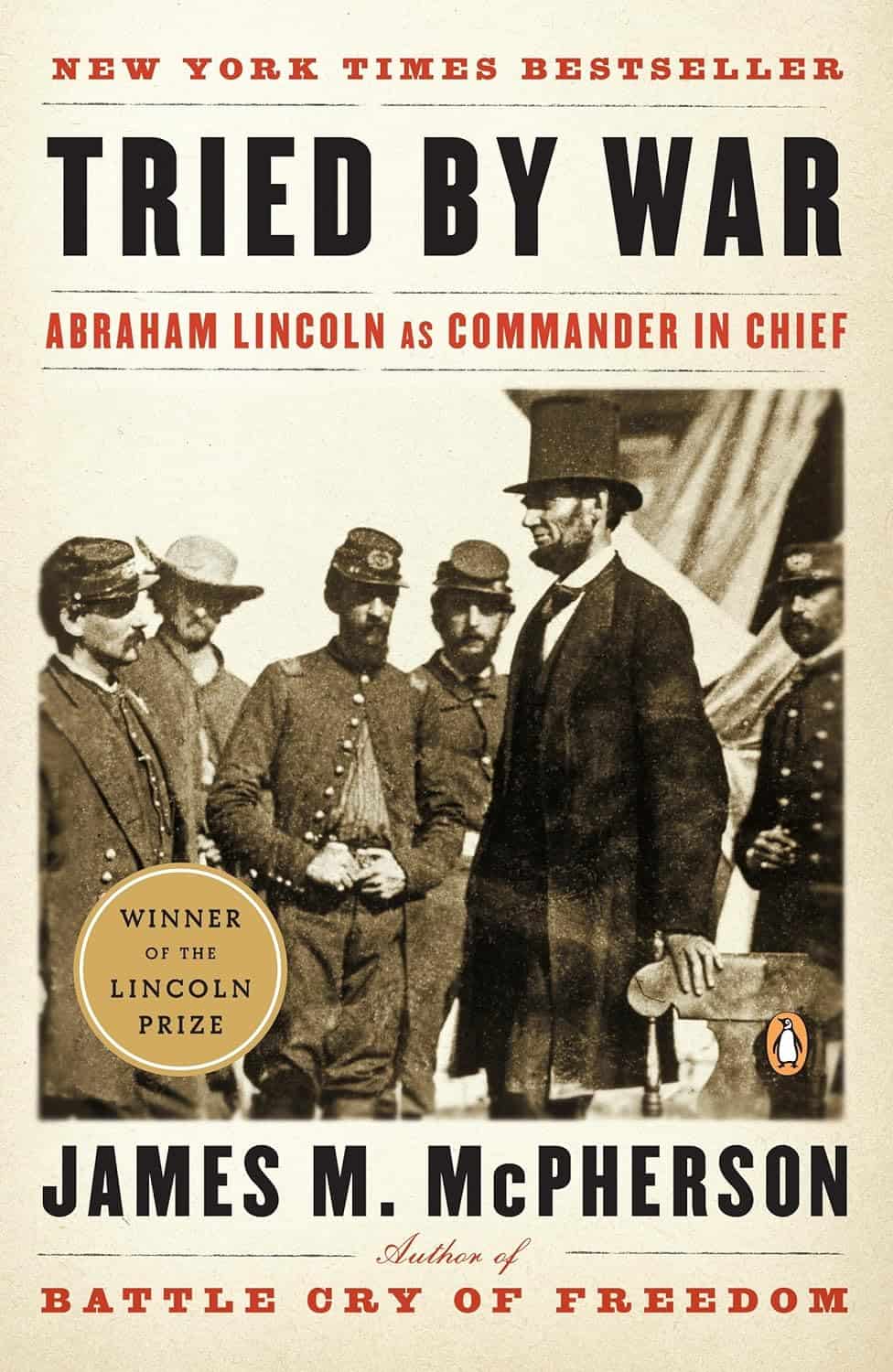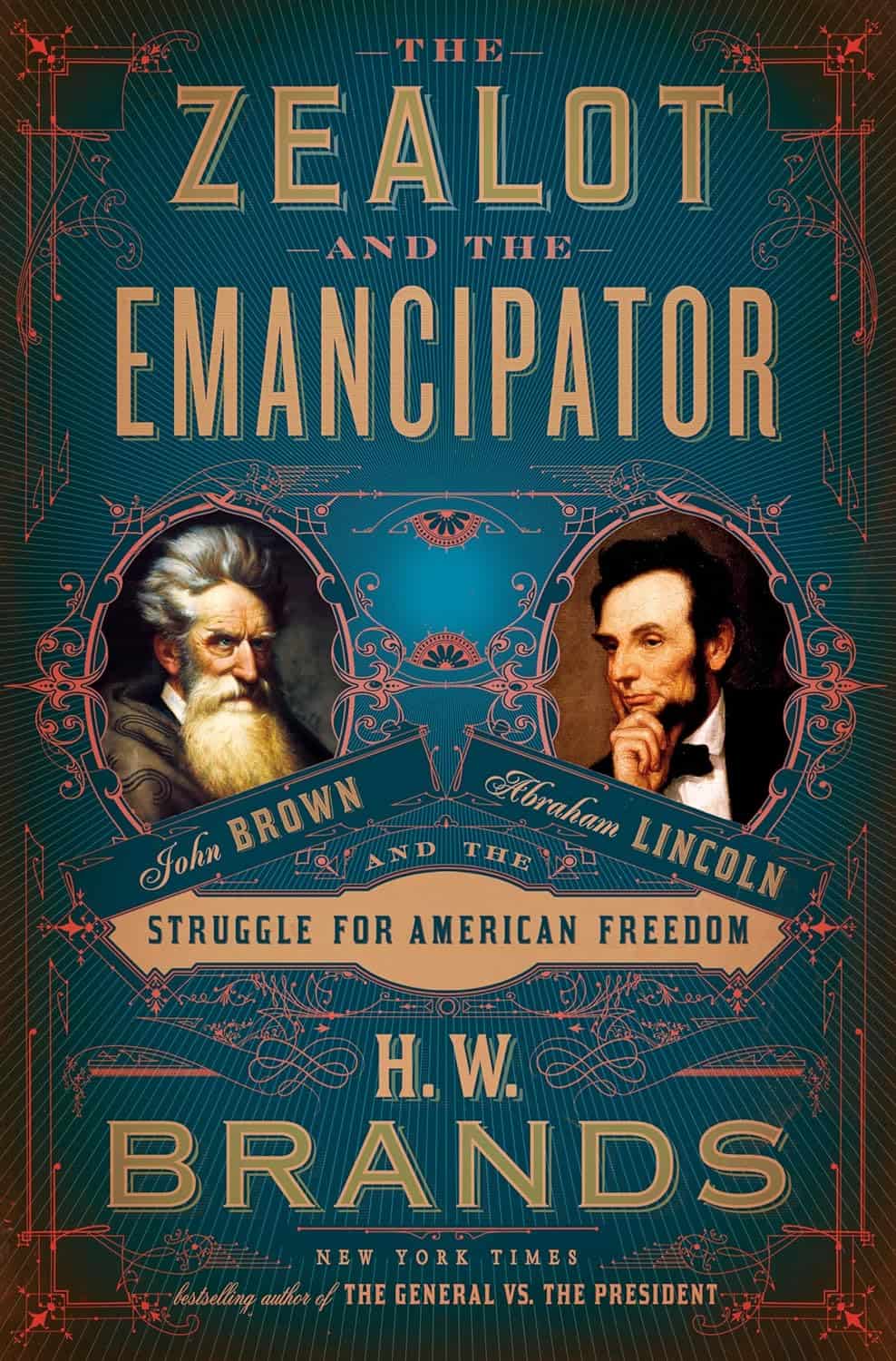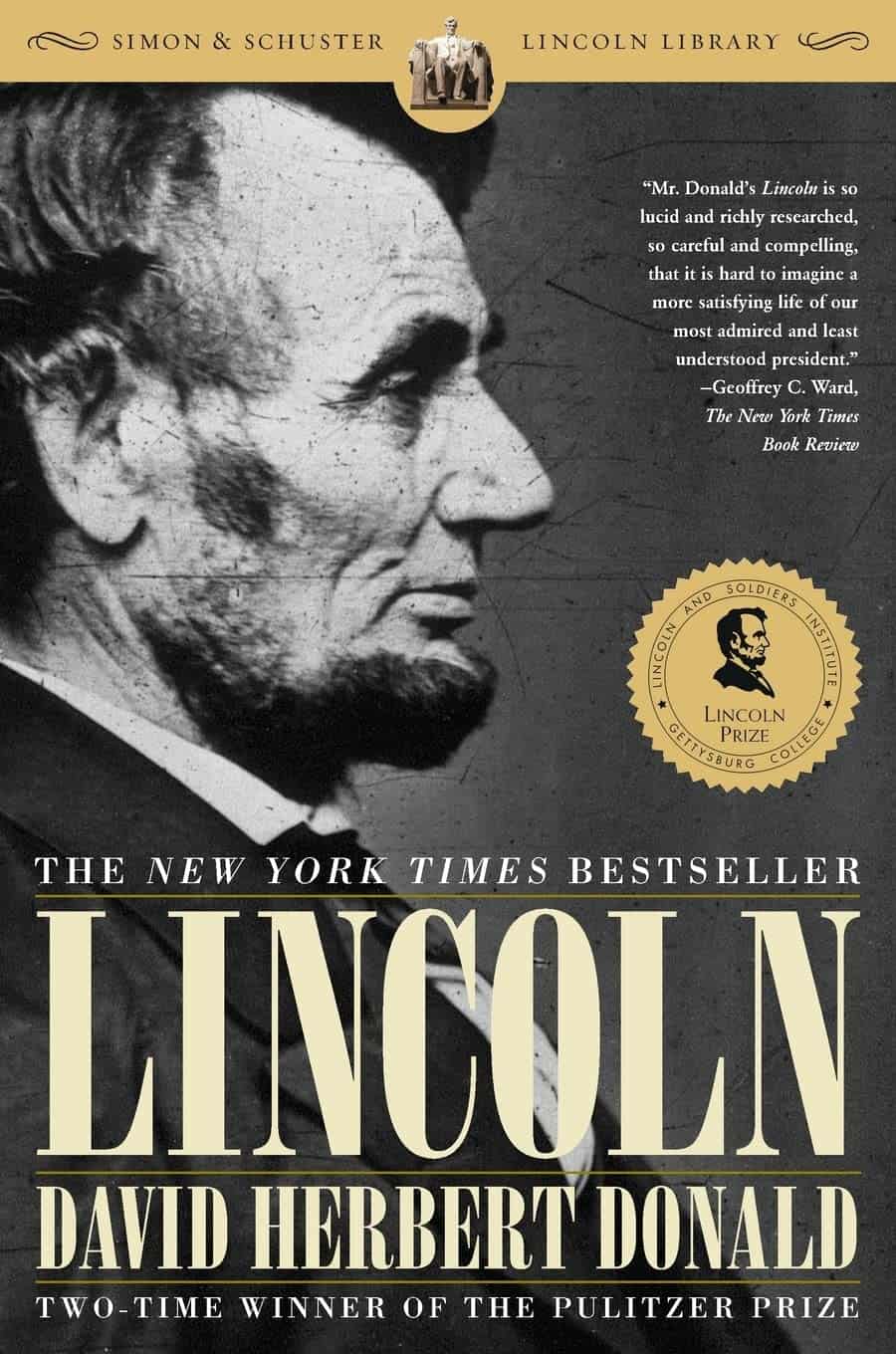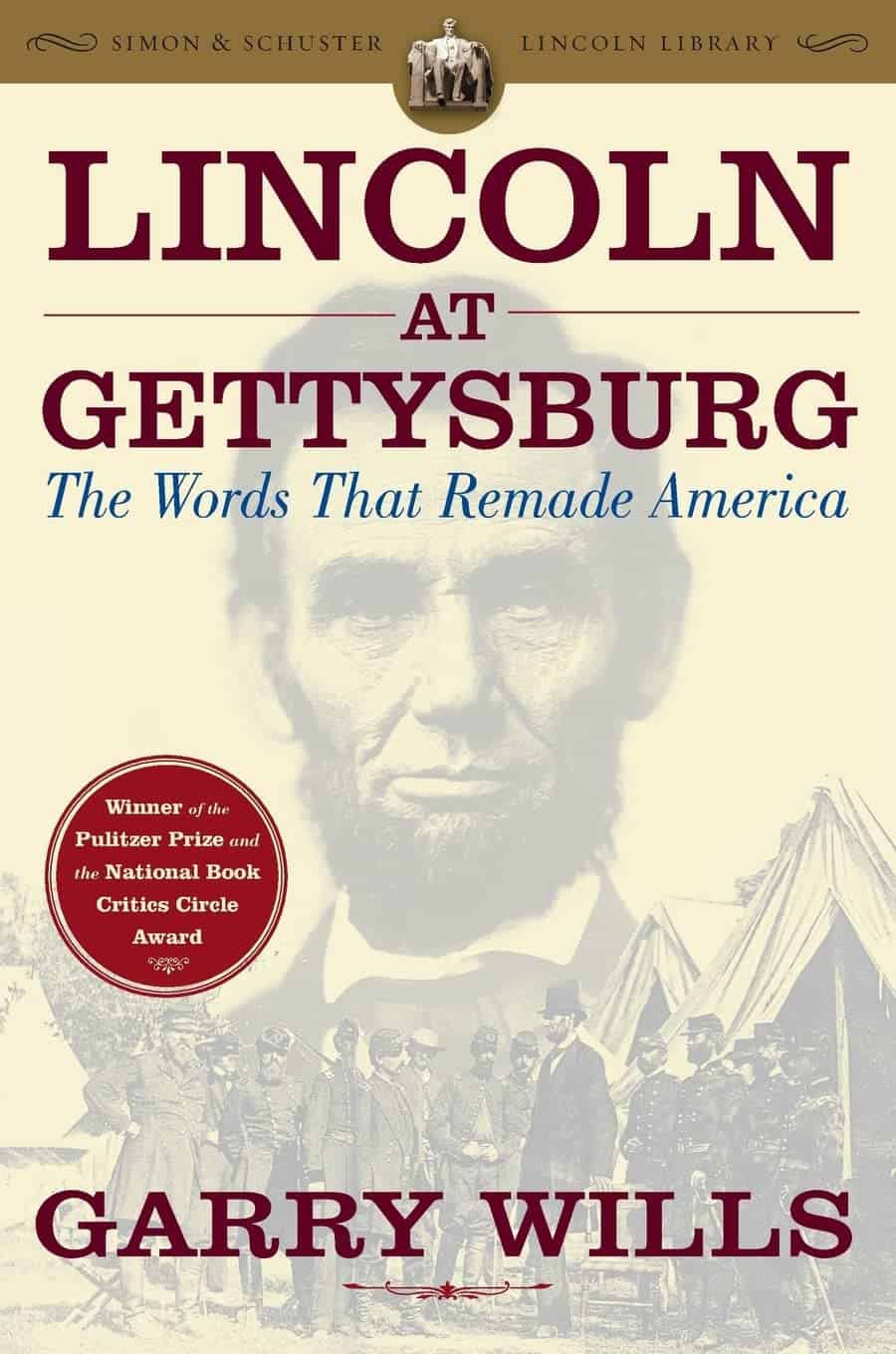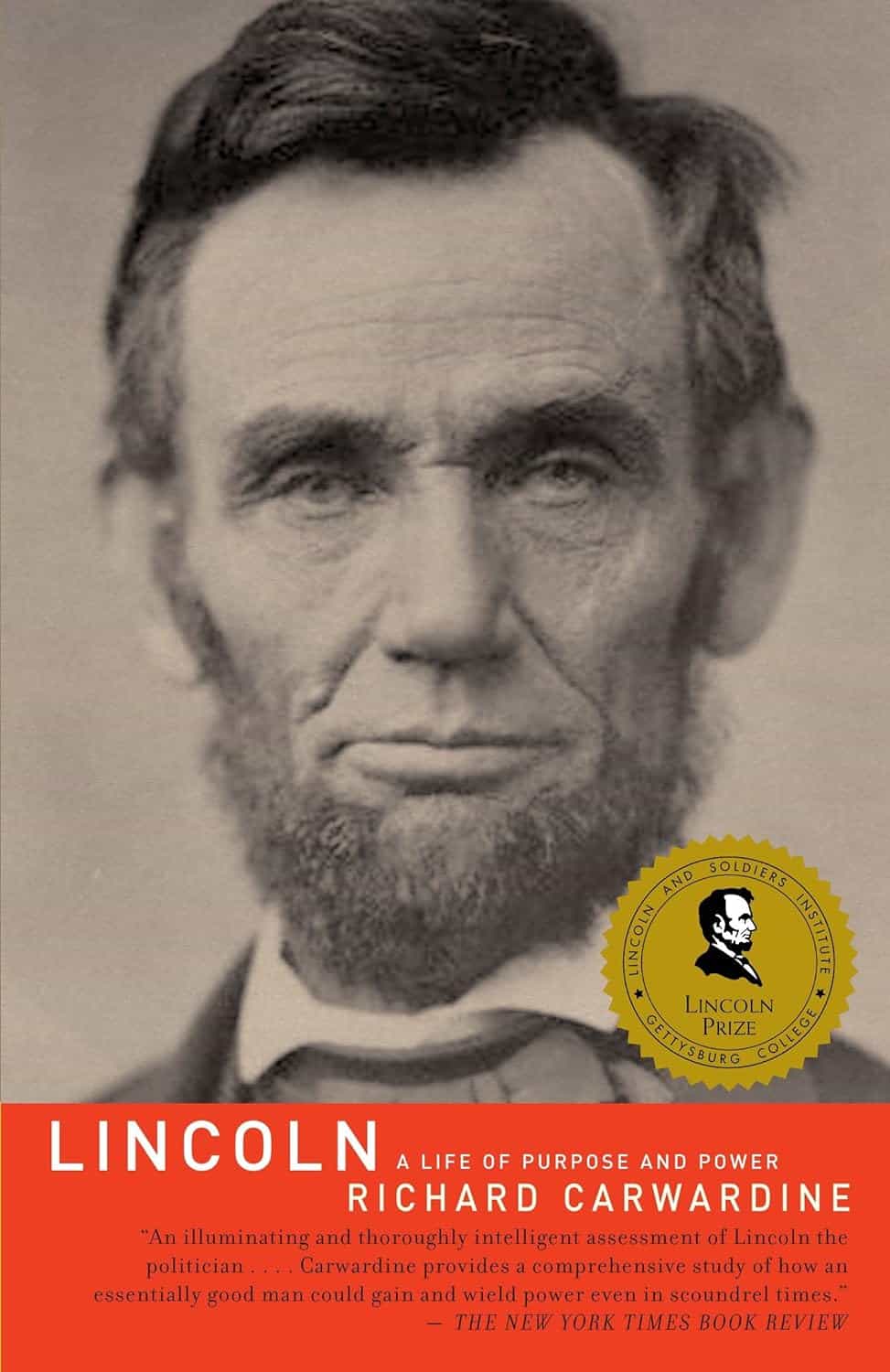President Abraham Lincoln’s legacy as a leader during the Civil War and his efforts to end slavery have made him one of the most studied figures in American history.
With countless books written about his life and presidency, it can be overwhelming to choose where to start. This list of 30 best books on US Presidents includes a selection of works that cover Lincoln’s childhood, his time in Congress, his presidency, and the tragic events surrounding his assassination.
1. Every Drop of Blood: The Momentous Second Inauguration of Abraham Lincoln
On March 4, 1865, Abraham Lincoln was inaugurated for his second term as the President of the United States. This historic event took place during the Civil War, a time of great uncertainty and turmoil in the country. In his inaugural speech, Lincoln called for reconciliation between the North and the South and emphasized the importance of preserving the Union.
Despite being met with mixed reactions, Lincoln’s speech marked a significant turning point in America’s history. The book “Every Drop of Blood” by Edward Achorn provides an in-depth look at the key players and events leading up to the inauguration, including Lincoln’s famous speech.
The book also delves into the aftermath of the inauguration, including Lincoln’s assassination just over a month later. Overall, the second inauguration of Abraham Lincoln was a momentous occasion that played a critical role in shaping the course of American history.
2. President Lincoln: The Duty of a Statesman
President Abraham Lincoln was not only known for his role in the American Civil War, but also for his exceptional statesmanship. William Lee Miller’s book provides a comprehensive overview of Lincoln’s political career, from his early years in the Illinois legislature to his presidency.
Miller’s analysis sheds light on Lincoln’s political thought, providing an illuminating portrait of one of America’s most distinguished leaders. As a statesman, Lincoln understood the importance of duty and responsibility, and he believed that the preservation of the Union was paramount.
His leadership during the Civil War demonstrated his commitment to these values, and his legacy continues to inspire generations of Americans.
3. With Malice Toward None: A Biography of Abraham Lincoln
Stephen B. Oates’ With Malice Toward None offers a comprehensive and insightful account of Abraham Lincoln’s life and impact. The 544-page biography draws from extensive research to provide readers with a detailed look at Lincoln’s humble beginnings, his rise to power, and his tragic assassination.
Through Oates’ intimate portrait of Lincoln, readers gain a deeper understanding of the man who led America through one of its most challenging periods. This definitive biography is a must-read for anyone interested in learning more about one of America’s most iconic leaders.
4. Lincoln’s Sword: The Presidency and the Power of Words
President Lincoln’s speeches were known for their powerful and influential nature. He was able to use words to effect change and shape history. One of his most famous speeches, the Gettysburg Address, is considered one of the greatest speeches ever given in American history.
In his book, Lincoln’s Sword, Douglas L. Wilson explores how Lincoln turned himself into a fantastic writer and how he used his words to achieve his goals as president. The book provides a detailed look at Lincoln’s life and showcases the power of words and their ability to shape history.
5. Abraham Lincoln: The Prairie Years and the War Years
Abraham Lincoln was born in a small farm in Kentucky and went on to become the 16th president of the United States. Carl Sandburg’s Pulitzer Prize-winning biography provides a detailed account of both the Prairie Years and the War Years of Lincoln’s life.
Lincoln was a man who was often morally conflicted but always determined to do what he believed was best for his country. During the Prairie Years, Lincoln worked as a lawyer and a politician, serving in the Illinois state legislature and the US House of Representatives.
The War Years saw Lincoln lead the country through the Civil War, which ultimately led to the abolition of slavery in the United States. Lincoln’s leadership during this time was marked by his determination to preserve the Union and his commitment to the principles of freedom and equality.
Overall, Sandburg’s biography provides readers with an intimate portrait of Lincoln and his legacy as one of the greatest presidents in American history.
5. Lincoln’s Sense of Humor
President Lincoln was known for his great sense of humor, which he used as a coping mechanism during the Civil War. He used jokes and puns to lighten the mood and boost morale among his staff and supporters.
Even in the darkest moments of the war, Lincoln was able to find something to laugh about. His sense of humor was one of his most defining characteristics, and it helped him through some very tough times.
Lincoln used his humor in speeches, letters, and conversations. As he matured, his humor became more refined and sophisticated. However, he also took risks using humor during a dark time in U.S. history. This helped him connect with the people and show that he was still human despite the weight of his responsibilities.
6. A. Lincoln
A. Lincoln by Ronald C. White Jr is a comprehensive biography that delves into the life of Abraham Lincoln. The book provides readers with a detailed account of Lincoln’s humble beginnings and how he rose to become one of the most influential presidents in American history.
White’s research is meticulous and provides new insights into many aspects of Lincoln’s life, including his family relationships, political career, and presidency. The use of newly discovered documentation adds to the richness of the book and makes it a must-read for anyone interested in the life of the 16th President of the United States.
7. Abraham Lincoln: A Life From Beginning to End
Henry Freeman’s book, Abraham Lincoln: A Life From Beginning to End, is a comprehensive biography of the 16th President of the United States.
The book delves into Lincoln’s early life, his political career, and his leadership during the Civil War. Freeman provides an intimate portrait of Lincoln, shedding light on his upbringing and remarkable achievements. The book also covers the tragic event of Lincoln’s assassination and his ongoing legacy.
8. Abraham Lincoln and the Second American Revolution
According to James M. McPherson, Abraham Lincoln’s role in the American Civil War went beyond just being the hero of the Union. McPherson argues that Lincoln was the leader of a second American Revolution, as he fought for liberty and equality for all Americans.
Lincoln’s speeches and letters reveal his vision for America, which helped change the country for the better and paved the way for future progress.
Lincoln’s leadership during the Civil War was not just about preserving the Union, but also about transforming the nation into a more just and equal society.
His commitment to the principles of liberty and equality inspired many Americans to fight for these values, which ultimately led to the abolition of slavery and the expansion of civil rights. Lincoln’s legacy continues to inspire people today, as we continue to strive towards a more perfect union.
9. Mr. Lincoln’s Army
Bruce Catton’s book, Mr. Lincoln’s Army, provides a detailed account of the Union Army during the American Civil War. The book highlights the growth and evolution of the army over time.
Catton also offers valuable insights into the thoughts and motivations of President Lincoln and his generals. The book provides a comprehensive description of the battles fought by the Union Army, which is a valuable resource for anyone interested in the history of the American Civil War.
10. The Civil War
Bruce Catton’s book, The Civil War, provides a detailed account of the events leading up to and during the American Civil War. The book offers fascinating insights into the characters and strategies of the key players involved in the war.
Catton’s work is an essential read for anyone looking to learn more about President Lincoln’s role before and during this critical event in American history. It is a comprehensive and informative resource that sheds light on one of the most significant events in American history.
11. Abe: Abraham Lincoln in His Times
David S. Reynolds’ book Abe: Abraham Lincoln in His Times is a comprehensive biography that delves into the life of America’s 16th president. The book covers Lincoln’s childhood on the frontier and his presidency during the Civil War, providing an intimate look into Lincoln’s life and the events that shaped it.
Reynolds’ biography also offers an in-depth exploration of Lincoln’s early life and his political career. The book provides a fascinating insight into the culture of the time and how it influenced Lincoln’s political decisions.
12. The True Identity of Abraham Lincoln: A Fresh Perspective on His Presidency, Objectives, and the Civil War
A new book by Thomas J. DiLorenzo challenges the conventional view of Abraham Lincoln as a noble leader who saved the Union and abolished slavery. DiLorenzo argues that Lincoln had a hidden agenda of expanding the federal government’s power and centralizing authority in Washington.
He claims that the Civil War was not necessary, but rather an opportunity for Lincoln to pursue his objectives without interference from Congress. This interpretation of Lincoln’s presidency is controversial, but it offers a new perspective on the Civil War and the role of the federal government in American society.
13. Lincoln at Cooper Union: The Speech That Made Abraham Lincoln President
Abraham Lincoln’s speech at Cooper Union on February 27, 1860, was a turning point in his political career. In his speech, Lincoln argued that slavery was morally wrong and should be abolished. His powerful rhetoric and logical arguments convinced many people that he was the right man for the job of president. As a result, he went on to win the election in November of that year.
Lincoln’s Cooper Union speech is considered one of the most important speeches in American history. It was a masterful display of political oratory that helped to shape public opinion on the issue of slavery. Harold Holzer’s analysis of the speech provides valuable insights into the public sentiment at the time and the impact of Lincoln’s words on American history.
14. The President and the Freedom Fighter: Abraham Lincoln, Frederick Douglass, and Their Battle to Save America’s Soul
Abraham Lincoln and Frederick Douglass had a unique friendship that was built on mutual respect and shared beliefs. Douglass, an escaped slave turned abolitionist leader, was initially skeptical of Lincoln’s commitment to ending slavery. However, as Lincoln’s presidency progressed, Douglass began to see him as a genuine ally in the fight for freedom.
Despite their different backgrounds and experiences, Lincoln and Douglass found common ground in their belief that slavery was a moral evil that needed to be abolished. Their friendship allowed them to work together to end slavery, with Douglass serving as a powerful advocate and Lincoln using his presidential power to enact change.
Their partnership was not without its challenges, as they faced opposition from both sides of the political spectrum. However, their dedication to the cause and their unwavering commitment to each other helped them overcome these obstacles.
Today, Lincoln and Douglass are remembered as two of the most important figures in American history, whose friendship and partnership helped to save America’s soul.
15. Manhunt: The 12-Day Chase for Lincoln’s Killer
In 2007, James L. Swanson wrote a 388-page book that detailed the 12-day manhunt for John Wilkes Booth, the man who assassinated President Abraham Lincoln on April 14, 1865. Swanson’s book captures the tension and fear that gripped the nation during those days as officials searched for Booth. The book also provides interesting insights into the characters of both Lincoln and Booth, making for a riveting read.
16. Lincoln on the Verge: Thirteen Days to Washington
On February 11, 1861, Abraham Lincoln embarked on a train journey from Springfield, Illinois to Washington D.C. to be inaugurated as the President of the United States. Ted Widmer’s book, Lincoln on the Verge, chronicles the thirteen days leading up to his inauguration. The book offers a comprehensive account of Lincoln’s thoughts, fears, and the reactions of those around him during this historic period.
Widmer’s book provides insight into the challenges that Lincoln faced as he prepared to take office amidst a deeply divided nation. Through his writing, he captures the essence of the political climate of the time and the significance of Lincoln’s presidency. Overall, Lincoln on the Verge is a fascinating portrayal of a pivotal moment in American history.
17. Lincoln Reconsidered: Essays on the Civil War Era
In his book Lincoln Reconsidered: Essays on the Civil War Era, David Herbert Donald provides readers with a fresh perspective on Abraham Lincoln and his presidency. The collection of essays covers a broad range of topics, from Lincoln’s early life to the end of the Civil War.
Donald’s analysis of each topic is detailed and insightful, offering a new understanding of Lincoln and the Civil War era. Originally published in 1956, the updated version includes two additional essays about Lincoln’s time as president and a new preface detailing all of Donald’s updates to the book.
Overall, Lincoln Reconsidered is a valuable resource for anyone interested in gaining a deeper understanding of Lincoln and the Civil War era.
18. Tried by War: Abraham Lincoln as Commander in Chief
Abraham Lincoln faced numerous challenges as the commander-in-chief of the Union army during the Civil War. He was responsible for making crucial decisions that would shape the course of history.
In his book, Tried by War, James M. McPherson provides an in-depth analysis of Lincoln’s leadership during the war. McPherson examines Lincoln’s handling of military strategy, his relationships with political leaders, and his interactions with the public.
Through a comprehensive examination of various sources, McPherson offers insights into Lincoln’s presidency and the challenges he faced as the commander-in-chief during the Civil War.
19. The Zealot and the Emancipator: John Brown, Abraham Lincoln, and the Struggle for American Freedom
John Brown’s raid on the federal arsenal in Harpers Ferry in 1859 was a pivotal moment in the struggle for American freedom. Brown’s goal was to arm enslaved people and spark a widespread slave uprising. Although the plan failed, Brown’s actions helped to plant the seeds of the Civil War.
While Brown was seen as a martyr by many in the North, those in the South were appalled by his actions and the admiration he received after his death. Even before becoming president, Abraham Lincoln was grappling with the issue of slavery and the growing unrest it caused. As president, he ultimately chose to fight for emancipation and preserve the Union, setting America on the path to abolition.
Despite their different motivations and tactics, both John Brown and Abraham Lincoln fought for freedom. Brown’s zealotry and Lincoln’s political acumen played important roles in the struggle for American freedom, and their legacies continue to inspire people today.
20. Lincoln
Abraham Lincoln is widely regarded as one of the most significant presidents in American history. His presidency coincided with a period of great change in the country, including the Civil War and the Emancipation Proclamation.
David Herbert Donald’s Lincoln is a comprehensive biography of the 16th president, providing a detailed account of his life from birth to death. The book covers Lincoln’s career as a lawyer, politician, and president, as well as his personal life. It offers valuable insight into the life and legacy of one of America’s most beloved leaders.
21. Lincoln at Gettysburg: The Words That Transformed America
Abraham Lincoln’s Gettysburg Address, delivered in 1863, is widely recognized as one of the most famous speeches in American history. In his book, Garry Wills provides a detailed analysis of Lincoln’s speech and its profound impact on American society and politics.
Through his careful examination of the historical context and Lincoln’s words, Wills demonstrates how the Gettysburg Address became a symbol of America’s democratic values.
The speech was a rallying cry for Union troops and helped redefine the purpose of the Civil War, inspiring generations of Americans to fight for freedom and equality.
22. Lincoln: A Life of Purpose and Power
Richard Carwardine’s 2006 publication, Lincoln: A Life of Purpose and Power, is a comprehensive biography of the 16th President of the United States. The book delves into Lincoln’s life from his humble beginnings to his significant role in the Civil War and assassination.
Carwardine provides an extensive analysis of Lincoln’s speeches and writings, offering insight into the thought process and political strategy behind one of America’s most iconic leaders. The book is an excellent resource for those seeking to understand the life and legacy of Abraham Lincoln.
Summary
Abraham Lincoln’s legacy has inspired countless books, from biographies to fictional tales. These books offer readers a chance to delve deeper into Lincoln’s life and presidency, as well as explore the impact he had on American history.
Some of the most popular books on Lincoln include Doris Kearns Goodwin’s “Team of Rivals,” which explores Lincoln’s political relationships, and Carl Sandburg’s “Abraham Lincoln: The Prairie Years and The War Years,” which provides a comprehensive look at Lincoln’s life and presidency.
Other notable books include Gore Vidal’s “Lincoln,” a fictionalized account of Lincoln’s presidency, and James McPherson’s “Battle Cry of Freedom,” which focuses on the Civil War.
